Sean Campbell
This humble community leader is a Top 10 Business Person of 2019
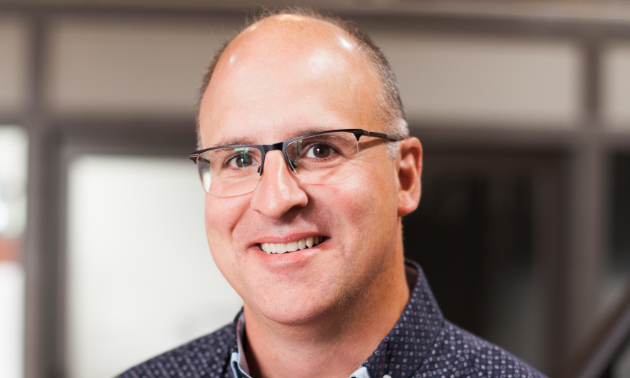
Sean Campbell is one of the Top 10 Business People of 2019. — Photo courtesy Sean Campbell
Some community leaders are comfortable in the spotlight and delighted to appear on the cover of magazines such as Kootenay Business. Others are all too happy to remain behind the scenes, spreading their influence to individuals in a more intimate, personal way. Convincing these leaders to come out of their shell takes some coaxing but can be done, assuming they’re given ample opportunity to prop up their coworkers and others that led to their success.
Sean Campbell, general manager of Community Futures East Kootenay (CFEK), is one of these leaders. Rather than take credit, he’d rather focus on the team effort that was required to accomplish ambitious visions like Cranbrook’s Ground Floor Co-working Space. That being said, you’ll find plenty of tidbits of wisdom sprinkled into Campbell’s responses, as well as a few helpings of praise to his dedicated team and entrepreneurs that he works with.
Why did you choose this line of work?
I’ve always been a keen problem-solver and interested in business. In 1998 I joined a consulting firm and travelled extensively to client facilities in Canada and the U.S., implementing real-time process improvement programs and training front-line managers and supervisors on goal setting and problem solving. It was a very rewarding career for seven years and really gave me the opportunity to learn what I was passionate about as well as identify the aspects of consulting that I was happy to leave behind.
What are some of your proudest accomplishments?
I would have to say that seeing the Ground Floor Coworking Space go through a transformation from an idea based on a global trend, meaning it was working well in large centres and for large players like WeWork, to becoming a new home for CFEK. The icing on that cake is that Ground Floor is now also home to a group of businesses and individuals that share this sense of community under one roof. It makes coming to and being at work every day a lot of fun.
I’m very proud of the Ground Floor but it was very much a team effort. A lot of local businesses and individuals were each instrumental in different ways for seeing this project through to our grand opening last April. It’s at least as important to be proud of that teamwork as of what we have accomplished together.
What’s the biggest risk you ever took?
Personal:
In 1998, while living in Calgary, I took a junior position with a management consulting firm based out of Laval, Quebec. I accepted the job on Thursday and was told that on Sunday I would be flying to Vancouver, where a gentleman named Neville would meet me at the airport. So I packed my bags, got on the plane and met Neville at the Avis desk where, apparently, I was renting the car. I clearly remember that covering the costs of the car rental, hotel and meals for the week put a real strain on my Visa.
To put this fully into context, my oldest son, who is now 21, was under 2 at the time. We were living paycheque to paycheque and renting a townhouse in Calgary. I hadn’t been on a plane in years, had never rented a car before, and didn’t know the first thing about being a consultant.
On the drive from the airport to the hotel, already feeling overwhelmed, Neville told me that I would learn more about business in the first six months than if I were to take my MBA. I discovered he was 100 per cent right, as he helped me develop and apply important skills quickly and thoroughly. Almost everything I learned over the next seven years with that company guides my actions in business today.
Business:
Convincing the CFEK Board of Directors to agree to invest over $400,000 in a local business. Offering equity financing to small businesses (buying shares) involves much more risk than the more typical term lending that Community Futures usually provides, and this was the first-ever equity deal that CFEK had ever considered.
It was shortly after I started with CFEK. It was the right solution for our client and it was a way for me to demonstrate early on that I understood and was comfortable with taking measured risks. It was important at that point to demonstrate that, with an expanded approach to financing, we could offer more creative access to capital to our clients. That financing project has turned into a wonderful business relationship that has allowed the client to grow their business.
At what point did you have real, tangible evidence that The Ground Floor was going to make it?
Public support for the Ground Floor from individuals, organizations, members and the media has been overwhelmingly positive. The most tangible evidence that we will make it is the growing number of members and both the planned and unexpected ways that people are finding to use the space.
What’s changed in your business over the years, and what hasn’t?
Engaging with communities on economic development opportunities and addressing challenges have been the backbone of Community Future’s mandate since inception, as has ensuring that small businesses have access to advice and patient and creative financing. The challenges that communities and businesses face are constantly changing, particularly where technology is concerned. The pace of technological change is challenging for most businesses, and CFEK faces those same challenges. We are working on improving the way we connect.
Once you experienced some success, how do you maintain and grow your business besides just doing the same thing on a bigger scale?
The Ground Floor is a perfect example of building on the success of CFEK. The primary goal of the Community Futures program across Canada is to foster strong, vibrant local economies by ensuring that rural entrepreneurs have access to capital, training opportunities and advice. By creating the Ground Floor, we created a space for entrepreneurs to not only access these services but expand their own networks and extended teams. I guess the short answer is to find new ways to help your customers, which often then leads to new customers.
What practical advice do you have for entrepreneurs?
Persevere, seek the advice of others and share your knowledge and experience generously. Having and being a mentor—being able to rely on trusted advisors and playing that role for others—is the best and most reliable way to manage down the risk of being an entrepreneur.
What’s something interesting about yourself that not many people know?
I’m not sure if this is interesting but my brain is filled with a fair bit of trivia—facts that can rarely be put to good use, while managing to take up room for more useful skills like time management and remembering birthdays.
For example, for the past couple of years I’ve taken a real interest in learning more about how the universe works, things like quantum physics and space-time, not in a science fiction way but research that is really happening. Like most people, I don’t understand half or more of what I read or watch or listen to but I think that that inability to fully comprehend these really vast concepts is itself kind of awe-inspiring.
Who do you admire, and why?
My team. Probably the only reason that I’m being profiled here is because of them.
Finish this thought: Success is . . .
Achieving the perfect balance of work, play, family, wealth, health and probably a lot of other things. That’s why success is perceived a little bit differently for each of us, that balancing point is based on how you rate the importance of each of these things against the others.

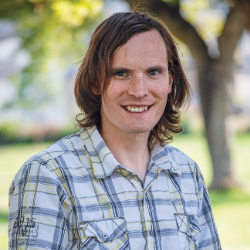
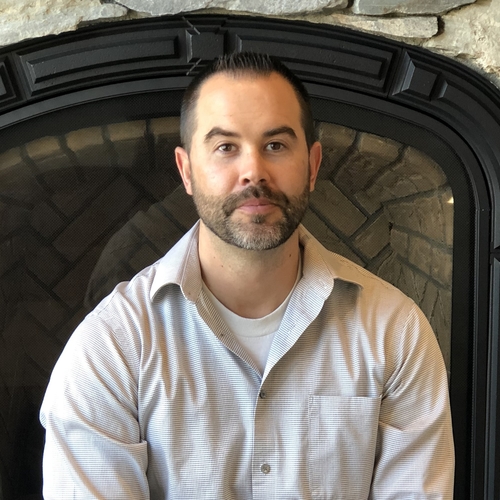
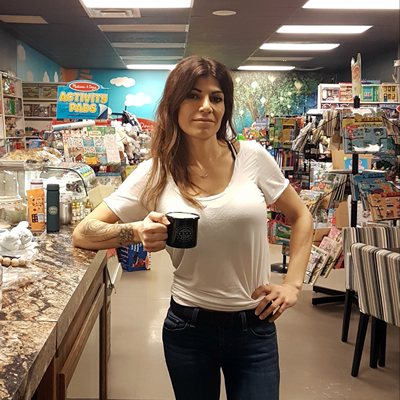
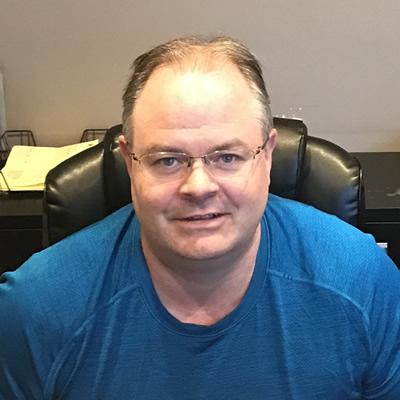

Comments